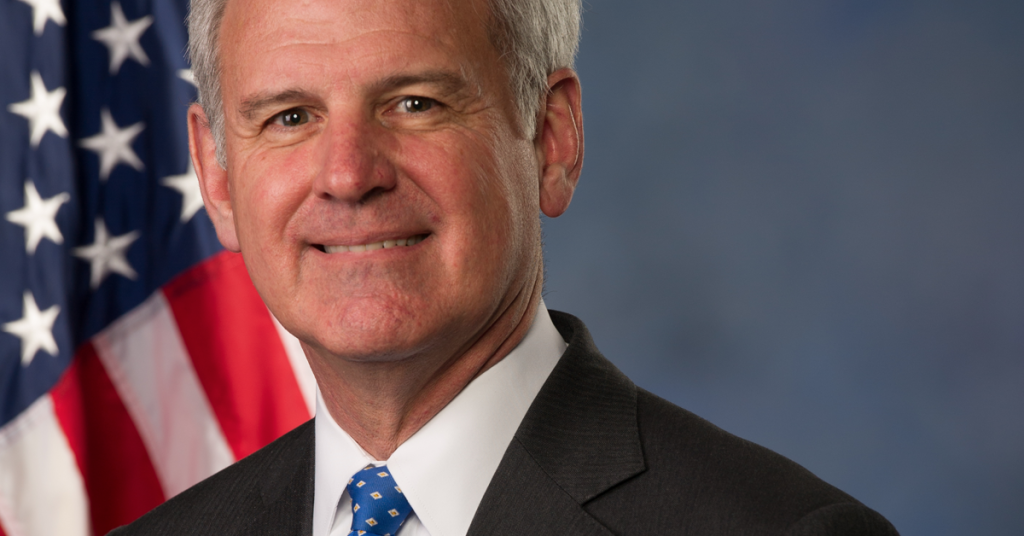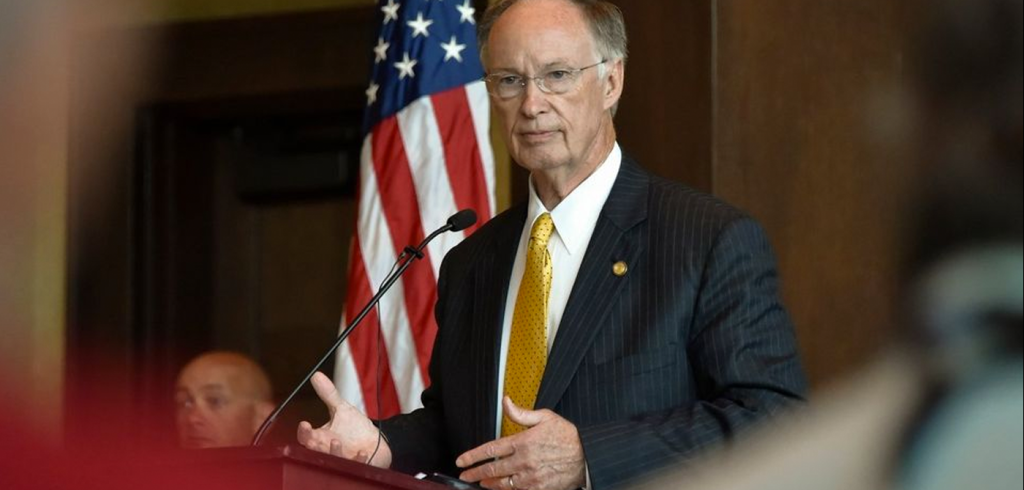Bradley Byrne: Hope in the Time of the Coronavirus

Bradley Byrne discusses the coronavirus pandemic.
Parker Snider: How Christ’s resurrection makes politics better

“He is not here; He has risen!” These are perhaps the most consequential words ever spoken. A man who three days earlier had been violently beaten, hung upon a cross, and buried lifeless in a tomb, is alive again! The reality behind these words—a risen Savior who had borne the sins of the world – prompted the disciples of Jesus to spend their lives spreading this news, Perpetua to die for her faith at the hand of the Romans and, more recently, Jim Elliot to take the still unknown Gospel to the Auca people of Ecuador. Christian heroes from years gone by voluntarily endured suffering, persecution, and death because the Resurrection changed one essential aspect of their being: their hope. The death and resurrection of Jesus, along with His subsequent appearance to more than five hundred witnesses, instills a confidence among believers that there is more than just this world. This confidence, this hope in Christ and the Resurrection, makes politics so much better. We can trust that, no matter who is in charge and what policies are being proposed in Washington or Montgomery, God will have His way. In times like these, this is a relief. Now this doesn’t mean that we can’t fight—we can and we do. It just means that when we fight, we must do so without manipulating facts, exaggerating outcomes, or fear-mongering. The other way, the “by any means necessary” approach, simply doesn’t align with the eternal hope we have as Christians. Since our hope is not in the government or political power, we are free to reject indefensible candidates on our own side, even if doing so might cost us political power. We are free to genuinely listen to those with different opinions, even if they challenge our own, and to praise goodness and truth, no matter the source. Furthermore, we can promote good policy honestly and in a way that is, as the Apostle Paul put it, “above reproach”. When we defend indefensible candidates, reject the validity of those experiences different from our own, scream “Liar!” every time a specific politician opens his or her mouth, or manipulate facts to create a certain narrative, we indicate that our ultimate goal is worldly power. Christians—we must do politics differently. Our faith in the Resurrection gifts us with knowing the ending – that one day all will be made well and we will praise Him for eternity. This knowledge of the future, however, is a luxury that non-Christians do not enjoy. They fight, sometimes “by any means necessary”, as if this world is all there is because, as far as they know, it is. As Christians, we can fight for policies we believe in—and we can fight hard—but, ultimately, our hope is not in politics. It is in the resurrection of Christ and the truth that death, the singular most worried about, written about, and fought against aspect of the human condition, is but a victory to us. This Easter weekend remember, rest, and act confidently in a hope greater than political power in this world—the finished work of Christ. ••• Parker Snider is Policy Relations Manager at the Alabama Policy Institute (API). API is an independent, nonpartisan, nonprofit research and educational organization dedicated to strengthening free enterprise, defending limited government, and championing strong families. If you would like to speak with the author, please e-mail communications@alabamapolicy.org or call (205) 870-9900.
Jack Williams: Easter reflections and Governor Robert Bentley

I am sitting at my computer on the Saturday of Easter weekend thinking about the past week in Alabama politics and in the life of Alabama Governor Robert Bentley. This is of course the day after Good Friday, the day we, as Christians, celebrate Christ dying for all of our sins, the veil in the Temple being torn in to giving man direct access to God. Tomorrow is the day we celebrate the resurrection of Christ from the grave, His victory over sin, over death and over Satan. Last Sunday the church celebrated Palm Sunday remembering Jesus’ triumphal entry into Jerusalem to the adoration of thousands. On Friday those who celebrated his entry and had hailed him as King turned on him and called for his crucifixion, preferring that a common thief and murderer be freed in his place. Today, between Good Friday and Easter Sunday I find myself asking has the church and have Christians forgotten the meaning of the story we celebrate during Holy Week. I have witnessed some of our Governor’s staunchest supporters turn on him. Many of his early supporters who are now hurt and disappointed in his failure calling for his resignation or impeachment. The stories seem juxtaposed against one another and seem to beg the question – do we believe what we celebrate? At this point let me state, I am not an apologist, nor a long time Robert Bentley supporter. In his first election I publicly supported his opponent, Bradley Byrne. During the six years he has served as Governor there have been several times he and legislative leaders have clashed on policy issues. I can’t recall a single time I sided with the Governor during one of these debates. Please understand the thoughts shared here are not those of the last Bentley fan still standing. They are more a reflection on my personal faith and a recognition that if the Gospel is true for me then it must be true for everyone. The message of the Gospel isn’t that you can live a better life following Jesus – the message of the Gospel is you cannot live without following Jesus. Our struggles and failures should constantly remind us how desperately we need Christ, unfortunately our perceived successes too often convince us instead of how well we are doing on our own. Sin is a strange thing. It’s a failure that we more quickly recognize in others than we do in ourselves. We have a tendency to understand our failures and excuse what leads us to fail. We also have a tendency to be deeply offended by those who sin differently than we do. Their sin just seems so much worse. If we are honest with ourselves and consistent with biblical teaching, we discover we are all in the same boat sinful and – short of the glory of God. Our Governor has spoken regularly of his faith. I believe it is real. His regular references to his faith have made this a much more bitter pill for some to swallow. How does a man who claims to believe what he claims to believe or be who he claims to be do these things? I don’t know the answer to that – I know, sometimes though, how I get into those situations where my beliefs and my actions are not consistent. I ask myself, how can I do this, then I’m reminded because I was trusting myself rather than living in total dependence on Christ. It’s hard to think of Governor Bentley’s situation without reflecting upon the story of David and Bathsheba. David should have been leading the army into battle but he stayed at the palace, saw Bathsheba taking her afternoon bath and send for her. The result – an unplanned pregnancy. David’s solution? Cover it up. He sent for Uriah, Bathsheba’s wife and sent him to his wife. Uriah would not go because his comrades were in battle. So David had him killed. Fortunately, in this situation Governor Bentley hasn’t been accused of murder. But not everything done in secret stays in secret. The prophet Nathan showed up and enraged David with a story of a rich man and a poor man. When Nathan revealed that the rich man was actually David he also shared with David the brutal consequences of his sin. Under the Law this was an offense David and Bathsheba could have been stoned for – but Nathan told David you will not die – but the child will. A very bitter turn, but not the end of the story – you see David and Bathsheba’s next child was Solomon, David’s successor to the throne and a part of the linage of Christ. At the time of David’s failure no one could have looked at David and thought he was in the right place. How could God have a king who would commit adultery and murder. But how many of us have sought solace in Psalm 51. Governor Bentley’s sin will be remembered by some for the next 50 years. David’s sin was chronicled by God and is remembered forever – but it is remembered as a story of redemption – not a story of failure. Hundreds of years after the fact Paul called David a “man after God’s own heart.” The Apostle Paul did not reflect upon David as an adulterer nor a murderer but rather as a man who loved God. Jesus was teaching at the Temple on day and a group of religious people brought him a woman who had been caught in the act of adultery. They asked him what should they do with her, since the Law commanded she be stoned. Eventually he suggested that the one without sin should cast the first stone. That quickly dispersed even this self-righteous crowd. Jesus asked her, where are those who condemn you, she told him no one did. Jesus, who was without sin, then stated, “neither do I condemn you, go your way and


